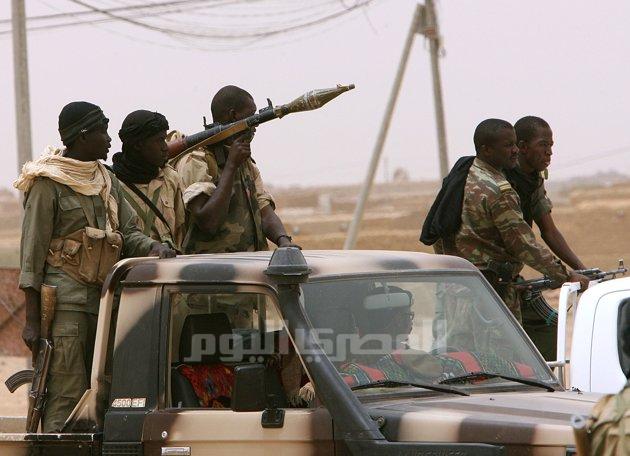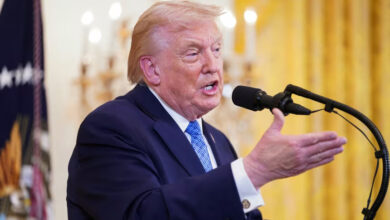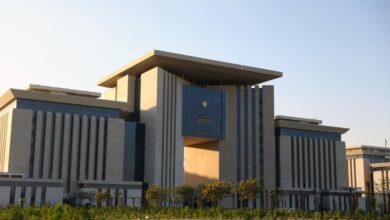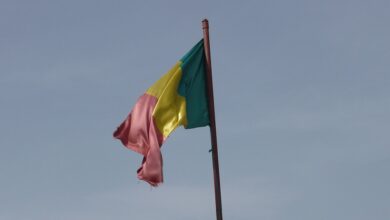
BAMAKO — Tuareg-led separatist rebels announced they had completed a military push aimed at creating the state of "Azawad" on the edge of the Sahara on Thursday after exploiting the chaotic aftermath of a coup last month to sweep across northern Mali.
Despite the declaration, West Africa's regional ECOWAS bloc ordered army chiefs to assemble a force on standby to enter a country experts fear has become a security vacuum for al Qaeda cells and smugglers.
Separately, President Nicolas Sarkozy said ex-colonial power France – which until now ruled out sending troops — left open the door to an intervention with a UN Security Council mandate but only after regional powers had tried to solve the crisis.
"Following the complete liberation of the Azawad territory and given the strong wish of the international community … the National Movement for the Liberation of Azawad (MNLA) has unilaterally declared the end of its military operations as of midnight Thursday, 5 April," rebel website www.mnla.net read.
The statement called for international protection of the "Azawad people against any aggression from Mali" — an implicit reference to a goal of secession, which African nations and world bodies have unanimously rejected.
The rebellion has tapped into deep-rooted frustrations over the lack of development in the north and was boosted by arms and men returning from Libya's conflict. Paris and other nations have called for talks over the issue.
West African governments are concerned about the lawless and sparsely populated desert north but have also imposed economic and diplomatic sanctions on the junta that seized power on 22 March from an elected civilian government in the capital Bamako.
However, aid groups on Thursday said the sanctions — aimed at crippling the economy by cutting off essential fuel and cash supplies — risked compounding an already dire situation on the ground because of the fighting and this year's harsh drought.
"All the food and medicine stored by major aid agencies has been looted and most of the aid workers have fled," Gaetan Mootoo, Amnesty International's researcher on West Africa, said of looting in rebel-held northern towns Gao, Kidal and Timbuktu.
"Blunt instrument"
Amnesty cited witness accounts of abductions of local women and girls by armed men but it was not immediately possibly to verify the accounts.
Aid agency Oxfam warned in a statement that sanctions were a "blunt instrument" which could hurt efforts to help some 3.5 million Malians facing food shortages after the failure last year's rains in the Sahel region.
Highlighting widespread lawlessness, the Algerian government said its consul and six consular staff were abducted in the northern town of Gao. A local MNLA spokesman blamed the attack on Islamists who fought alongside the Tuaregs but it now accused of seeking to "sabotage" its plans to create an Azawad state.
Ansar Dine, the Islamist force that the MNLA has operated with, has said it wants to impose sharia across all of Mali and so far not put any limits on how far it will advance.
In Paris, French officials insisted on the distinction between the secular MNLA and Ansar Dine Islamists, who had been "infiltrated" by Al-Qaeda in the Islamic Maghreb, AQIM. While France argues there is no military solution to the rebellion, Sarkozy left open the door to an intervention as a last resort.
"France cannot envisage any intervention without the regional powers first trying to calm the situation and unless there was a UN Security Council mandate," he told reporters.
Junta leader Captain Amadou Sanogo has so far shrugged off the trade, diplomatic and financial sanctions imposed by Mali's neighbors and Western powers wanting a return to civilian rule.
A conference he had called for Thursday to end the political crisis was put on ice after political parties rejected the idea, adding to the political uncertainty.
Junta and diplomatic sources said ECOWAS mediators were in advanced talks with the coup leaders over a possible deal to restore civilian rule, without giving details.
West African countries discussed an intervention force for Mali, despite practical difficulties to any such intervention in one of the world's poorest regions.
At the meeting of regional army chiefs, Ivory Coast acting Defense Minister Paul Koffi Koffi said the force had to find ways to "secure the return to constitutional rule and, on the other hand, stop the rebel advance".
After announcing the halt to their advance, the rebels are still well over 500 km (300 miles) from the capital Bamako
But the MNLA has an uneasy relationship with Ansar Dine, which is potentially stronger militarily, and analysts say the two groups could soon clash due to conflicting aims.



